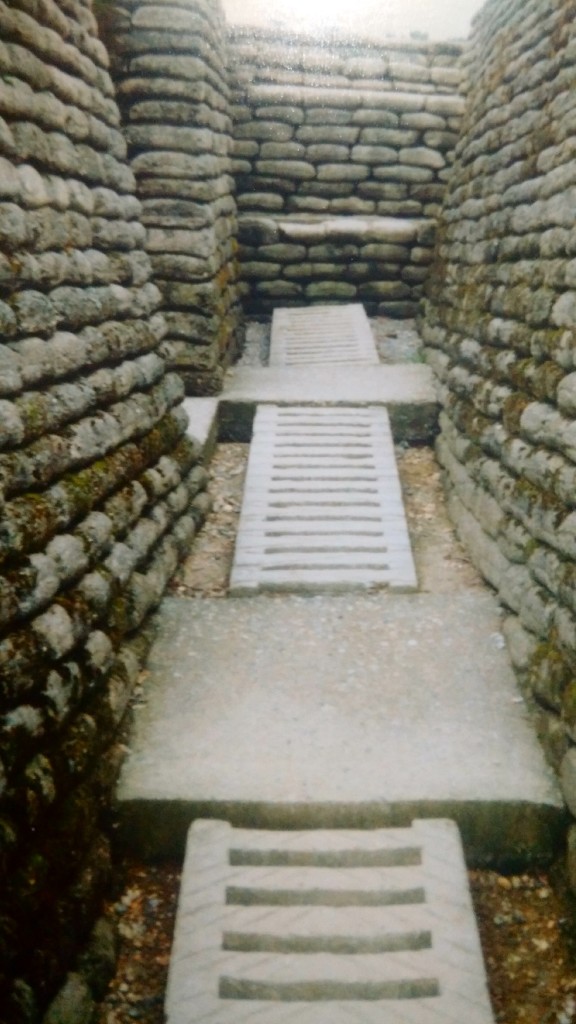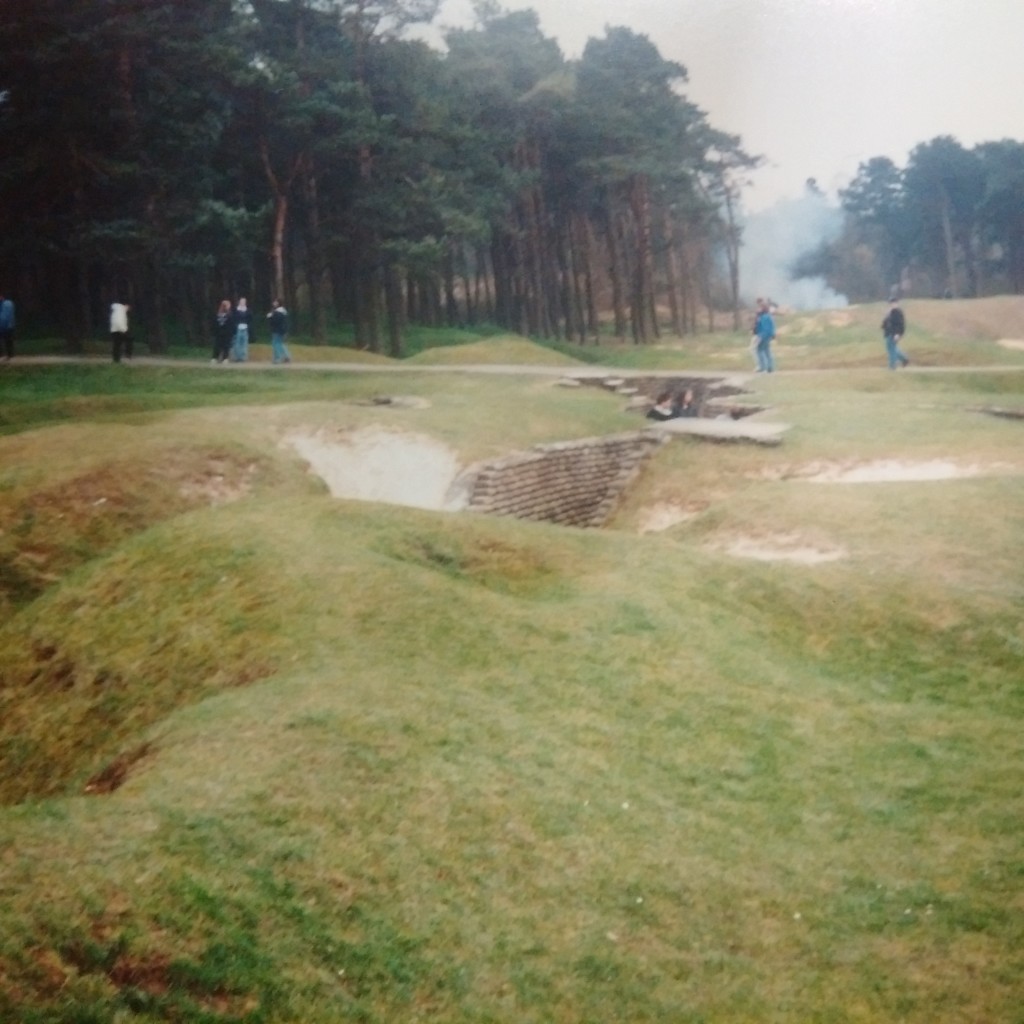Today I will stand at a cenotaph and speak at a Remembrance Day event. I will have the honour to shake hands with veterans who served this country in times of war and peace. Today I will cry for a friend who never made it home after serving his country, and for another who made it home in body but not in spirit. I will cry for every soldier who died in service, who was wounded physically or mentally, and for every soldier who saw a friend, a brother or sister in arms, die or be wounded.
I trained as a military historian, investigating recruiting techniques in small-town Ontario during the First World War. I wanted to know what made thousands of young men travel halfway across the world, to the muddy trenches of Belgium and France, and fight other young men with whom they had no personal quarrel – only the disagreements of their leaders. These young men left everything they knew in order to fight an ‘enemy’ doing much the same thing. What I learned over the course of my research fundamentally changed me. I learned that for the most part, it wasn’t about “King and Country” or justice for Belgian orphans, or one of the myriad of noble reasons that I found in my history textbooks. No, what changed me was that these young men almost a century ago went to war for reasons much closer to home. They went because they were promised adventure. They went because they were going to inherit the same farm that their father and grandfather worked and wanted to see the world before settling down. And they went because their friends were going and they didn’t want to miss out. Reasons I could see my friends signing up. Reasons I would have signed up for war. Suddenly I could put myself in the place of those soldiers. They became more than names on the cenotaph.
As I continued my research, I discovered that local newspapers regularly published letters home from the soldiers. I spent days searching out every one of the letters from each of the soldiers. I read their queries about their siblings, the farm, and how everything was back home. Things at the front were often described as “fine” or “no change”, without much description. This was partly due to the censors, but partly escapism too. For, when writing home from a cold, damp, and muddy tent behind the supply lines at the best of times, and a wet, rat infested trench at the worst, it would be easier to focus on happier times at home than on the circumstances at hand. One of my professors warned me that personalizing the soldiers was dangerous, that military historians couldn’t be emotionally tied to their research. I looked him in the eye and told him the day I didn’t shed a tear over the death of a soldier was the day I was no longer fit to be a military historian. I shed a lot of tears over the course of my research and produced a paper that was, I hope, a fitting tribute to all of the soldiers I studied. I vowed to never forget them, and, so far, I have kept my promise.
Why World War One? Well that is one question I can answer easily. I walked the trenches at Vimy Ridge at the tender age of 17 thanks to a high school music trip. We saw a lot of impressive monuments on that trip: York Minster Cathedral, Hadrian’s Wall, The Elgin Marbles at the British Museum, the Palace at Versailles, the famous artwork in the Louvre, but it was the trenches of Vimy that changed me. Before that trip, I’d loved history – but it was ancient history that held my heart. The Romans, the Greeks, and the Egyptians – they were what I was going to study. I had plans to go into archaeology and uncover the secrets to long-lost civilizations. I’d done well in my grade 10 Canadian History course, but I wasn’t a fan of the military history – it was all about the numbers, the battles, and the tactics. Those never held much sway for me. In contrast, my ancient history courses had all been about the people so I was interested. Walking the trenches at Vimy, walking up to the monument and seeing the names of Canadians who weren’t much older than I was that day, who were buried in cemeteries that adorn the French countryside. I asked the tour guide why these young men signed up for war, and she gave the well rehearsed answer of “for King and Country”, but I wasn’t satisfied. I wanted to know more, and so I researched. I wanted to know what would motivate someone my age (I was almost 18) to sign up to endure such horrific conditions: cold, muddy, rat-infested trenches for years on end. I was curious as to whether I, or my classmates, if faced with the same decision would make the same choice. I admit that I was fairly confident that we would not. I was wrong. The boys of a century ago were not so different from teenagers today, and that is what I will be remembering today. The young men who served with valour, honour, and courage. Who did not know the horrors they had signed up for, but once faced with them, bravely fought and put on a cheery facade for their friends and family when writing home. These are who I will be thinking of as I mark the eleventh hour on the eleventh day of the eleventh month.

Many Remembrance Day ceremonies end with the words of British poet Laurence Binyon. His poem For the Fallen was published in The Times newspaper on September 21st 1914. The third stanza has become known as the Ode of Remembrance.
They shall grow not old, as we that are left grow old:
Age shall not weary them, nor the years condemn.
At the going down of the sun and in the morning,
We will remember them.
I, for one, will always remember and ask you to pause and do the same.
Remember (re·mem·ber ) verb
- To have in or be able to bring to one’s mind an awareness of (someone or something that one has seen, known, or experienced in the past).
- To cause (something) to come back into your mind
- To keep (information) in your mind : to not forget (something).

Beautiful, Jenn. My dad is one of the few living WW II vets and I honour his and others’ stepping forward.
Thank you. I wish it was a statutory holiday. Stop the world for a day.
I have always been a proud Canadian; standing at the cenotaph every year is a small price I pay to pay tribute to those who served for us. I also had the chance to see those countryside cemeteries and walk the trenches of Vimy Ridge this past year. I have never been more deeply proud to be a Canadian than in those moments. I found it deeply emotional and will think of those men today as I stand again in the rain and cold to remember.
It almost feels more authentic when it’s grey and raining outside. I imagine that the rain is the teardrops from all the Veterans who are already gone.